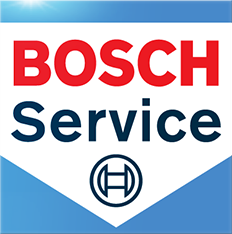If your car has reached the 75,000 mile mark or higher, it usually means at least two things:
Thank you for reading this post, don't forget to subscribe!- You’ve probably been taking care of it, so congratulations!
- Your vehicle now requires a little more tender loving care.
High mileage vehicles are pretty common, but without proper maintenance, you may be setting your car up for failure. The car’s parts are getting older and have received a lot of wear and tear. To get the most out of your vehicle, take some of these simple steps to ensure that your car can stand the test of time and keep you on the road for more miles and years to come.
Oil Changes
This cannot be stressed enough. Regular oil changes are the lifeblood of your vehicle. Changing the oil keeps your vehicle lubricated, so all the parts can move the way they are designed. It keeps the engine cooler and removes harmful build up and debris from floating around in your system. You will want to throw in other services like fluid checks, visual inspections, and checks to your filters. Bring your car to our qualified technicians to troubleshoot, diagnose, and even preempt mechanical and structural failures in parts like belts, filters, hoses, lines, etc.
Fluid Flushes
Fluid flushes are very important, when you own a high mileage car. You will want to consider a transmission flush on an automatic transmission, so that your old, used up transmission fluid doesn’t actually do more damage to your vehicle. Heat and time wear down transmission fluid, so having this flushed out, when you get to higher miles, will help protect your transmission and help performance. Consider also a flush of your coolant system, especially if you have noticed that either your air conditioner or your heater have not been running at top performance. Coolant not only keeps your engine cool, but also moves and redirects heat around the engine, preventing parts from overheating and becoming damaged.
Change Tires
Good tires are very important for the life and performance of your vehicle. Make sure you are watching your tires for any signs of uneven wear on the tread. Uneven wear is the first indication that you are in need of a tire pressure check, tire rotation, wheel balance, alignment, or even possibly suspension repair. You can prevent most uneven wear by regularly rotating your tires, making sure they are balanced and aligned, as well as keeping them inflated properly. Over-inflated or under-inflated tires are more prone to wearing out faster and can cause flats or blowouts.

Tune-Ups
Make sure you are getting a tune-up at least every 6-12 months, or with every 3rd oil change. Tune-ups typically include a fuller spectrum assessment of your vehicle to check for any underlying problems you may be having with other vital components of your engine. Your engine still wants to perform optimally, and a tune-up will increase your car’s performance.
Emergency Roadside Kit
- Even with preventative maintenance and extra care on your vehicle, there’s always a chance that you may break down. Don’t worry. Just be prepared. Many vehicle emergency kits will include basic items like road flares, gloves, a first aid kit, a fire extinguisher, hazard triangles, a tire gauge, and a flashlight. You can create your own, but make sure you also have spare cash, a disposable camera (if you don’t have a cell phone), extra washer fluid, windshield scrapers, a bag of cat litter (for winter), water, blankets, and some emergency food. It’s always a good idea to make sure you have a good spare tire, tire jack, jumper cables, and tools. Roadside assistance is great, but don’t be stranded in an area without a tow truck for miles without an emergency kit.
Following these tips will help you to continue down the preventative maintenance road with your car. How far will your car go? The better the care, the longer the life!

